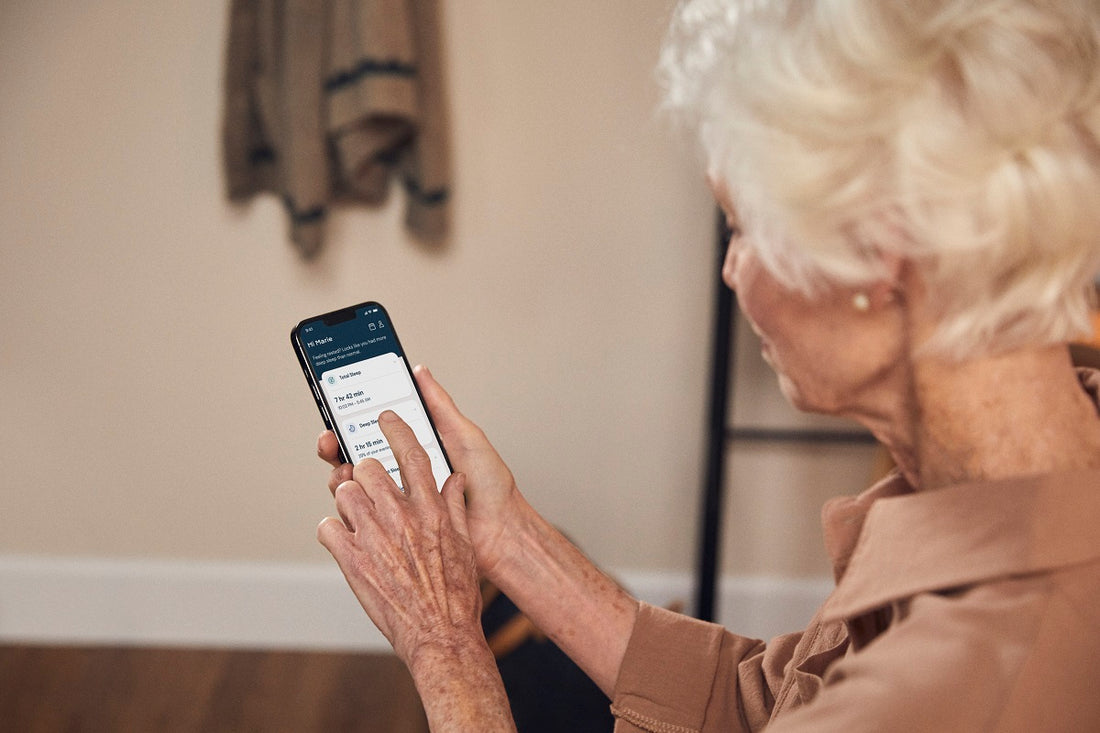Millions of Americans wear fitness trackers, whether running a marathon or running to the grocery store. No longer just for athletes, every age and lifestyle sport wearable devices to track daily steps with real-time updates sent to a smartphone app.
But fitness trackers, smartwatches, and other health-related wearables do more than count steps. A host of devices are more deeply rooted in monitoring personal health data, allowing users to track their heart rate, blood oxygen levels, blood pressure, sleep patterns, sun exposure, and much more. And with a pipeline of new devices in development, monitoring one’s health will become easier as components get smaller, and the devices become more powerful.
Now, more than ever before, tracking personal health data is accessible. What may have taken a trip to the doctor’s office (and a follow-up visit) is now available instantaneously on a smartwatch or app. Eye-opening data and valuable insight can help users make daily changes for better health and illness prevention.
Recently on CBS Sunday Morning, experts explained how a smartwatch could monitor data for early warnings of medical problems before a doctor might. Devices today include electrocardiogram features that can detail atrial fibrillation (A-fib) and irregular heart rhythm that can be a precursor to a stroke. Advances in technology can show early signs of circulatory, lung, or heart disfunction like anemia, neurological issues, or sleep disorders. Looking to the future, experts predict that one day, self-tracking data may help detect conditions like infectious diseases, type II diabetes, heart conditions, and even cancer.
Data in the Palm of Your Hand
Over the last few years, health tracking devices have become more sophisticated and wearable. Many devices with tiny sensors are small enough to be worn comfortably throughout the day and the night, including smartwatches, bracelets, necklaces, and rings. However, according to an Ericsson Consumer Labs study only 26% of users wear their wearable devices to bed at night. Sleep monitoring devices that connect to an app, like the Dawn House Bed, allow users to seamlessly measure their health data and sleep quality throughout the night, providing a complete 24/7 picture of their health metrics. To pinpoint the reasons for restless sleep, a snapshot of health data can facilitate better-informed conversations with health care providers and be shared with loved ones.
Empowering Positive Change
Having an objective daily health tracker can be a revelation. A partner’s snoring may be more disruptive than initially thought. Physical activity may be significantly overestimated. And on the other side, daily caloric intake is often underestimated. Health tracking devices can change a user’s mindset and create a healthier everyday routine from morning to night. Self-tracking data over time can provide new insights and motivate goal setting.
In addition to supporting positive behavioral changes, personal health trackers provide psychological benefits. Gaining control and being proactive in managing your health can increase feelings of autonomy and happiness. Personal health tracking apps create a social network and a sense of belonging, connecting with other users with similar goals or challenges. Having and hitting a goal every day can boost self-esteem and serve as an incentive to keep going.
Concerned About Tech Privacy
To address privacy concerns, purchasing a sleep tracking system, smartwatch, or fitness tracking device from reputable providers is best. Read the privacy policy of the item before buying to get a sense of how the company values a customer’s data and what measures are in place to protect it. The policy should clearly outline how gathered data is used, stored, and accessed. And check the privacy settings on each device to ensure it is configured correctly. For further peace of mind, in September 2021, the Federal Trade Commission affirmed that health apps and devices that collect glucose levels, fertility data, heart health, and other health-related data must notify consumers in the event any health data is breached.
Advances in design and technology make health tracking devices easy to integrate into one’s daily life, from daytime activity to measuring vital signs as one sleeps. And the promise of disease detection before developing symptoms becomes closer to reality each day. At Dawn House, we are excited to contribute to this new age of technology and empower our customers to be proactive in their health.



